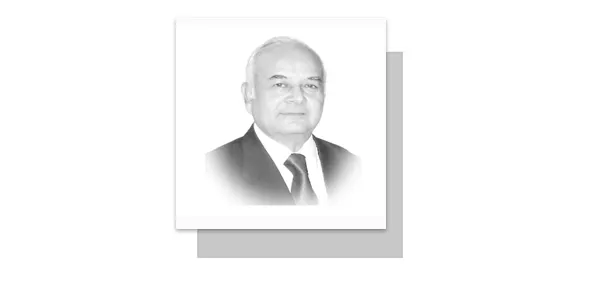THE warning statement of Martin Raiser, World Bank Vice President for South Asia, must act as an eye opener for the Pakistani establishment, which is trying extremely hard in its own ways to stabilise Pakistani economics and politics, knowing fully well that all politics is economics. However, economics in isolation is nothing. Economics needs an eco system with roots at the grass level. Only bringing in provincial and national assemblies will take Pakistani nation to a disaster sooner than later.
In the current Pakistani governance system, local governance is NON-EXISTENT, which will never operate at the desired level through the current system and these politicians, unless the prior creation of administrative units based on the current boundaries of the civil divisions. Subsequently, the elections for establishing national level government (under presidential or parliamentary system) can be held, where it must also be decided that for any democracy in true sense needs ‘proper and genuinely democratic’ elections within the political parties was a must, before giving Pakistan the true gift of a political democratic system.
As the above process may take its own time, the current caretaker set up may be revamped with the induction of truly non-partisan specialists sans the hit men of the lending agencies to bring the nation back on rails with sectorial reforms suggested as below: Breaking the stranglehold of the ruthless elite in Pakistan requires comprehensive measures. Reforms targeting corruption, ensuring fair taxation and addressing the concentration of power and wealth among a few are crucial. Transparency in governance, effective implementation of anti-corruption laws, redistributive economic policies and creating opportunities for broader participation in the economy can help alleviate the plight of the poor. Additionally, fostering an environment conducive to foreign investment through stable policies and addressing structural issues hindering economic growth is vital. It’s a complex challenge that demands multifaceted strategies and a sustained commitment to change.
Addressing the entrenched power of the elite in Pakistan and providing relief to the poor requires a comprehensive approach that encompasses political, economic and social reforms. Here’s a potential strategy to break the stranglehold of the ruthless elite and alleviate the burdens faced by the underprivileged:
Empower the grassroots: Foster political participation and civic engagement among the marginalized communities through education, awareness campaigns and support for community organizations. Encourage active involvement in local governance and decision-making processes.
Promote transparency and accountability: Implement robust anti-corruption measures, strengthen oversight institutions and enhance public access to government information. Encourage citizen involvement in monitoring public spending and holding officials accountable.
Land reforms and tenant rights: Implement equitable land distribution policies to address the concentration of land ownership among the elite. Strengthen tenant rights and protections to prevent exploitation and ensure fair access to land for agricultural production.
Progressive taxation: Implement a progressive tax system that places a higher burden on the wealthy and redistributes resources to support social programs and infrastructure development.
Targeted social safety nets: Expand and strengthen social safety nets to provide direct assistance to the most vulnerable populations, including cash transfers, food subsidies and healthcare access.
Invest in education and skills development: Prioritize investment in quality education and skills training to enhance human capital and create employment opportunities for the poor. Focus on STEM education, vocational training and entrepreneurship programs.
Support small businesses and entrepreneurship: Provide access to finance, technical assistance and market linkages for small businesses and entrepreneurs to stimulate economic growth and job creation.
Infrastructure development: Invest in critical infrastructure projects, including roads, energy and telecommunications, to improve connectivity, reduce transportation costs and enhance economic productivity.
Promote agriculture and rural development: Implement policies to support sustainable agricultural practices, improve access to modern agricultural technologies and enhance market access for rural producers.
Empower women: Invest in women’s education, healthcare and economic opportunities to promote gender equality and reduce poverty. Support women-led businesses and initiatives.
Na Samjho Gay Tou Mit Jao Gay Ay Pakistan Waaloo, Tumhari Dastan Tak NA Hoo Gi Dastanoon Mein, Pakistan Paindabad
—The author writes on strategic, political, economic, current affairs & sports.
Email: nayyarahmad51@gmail.com
views expressed are writer’s own.










